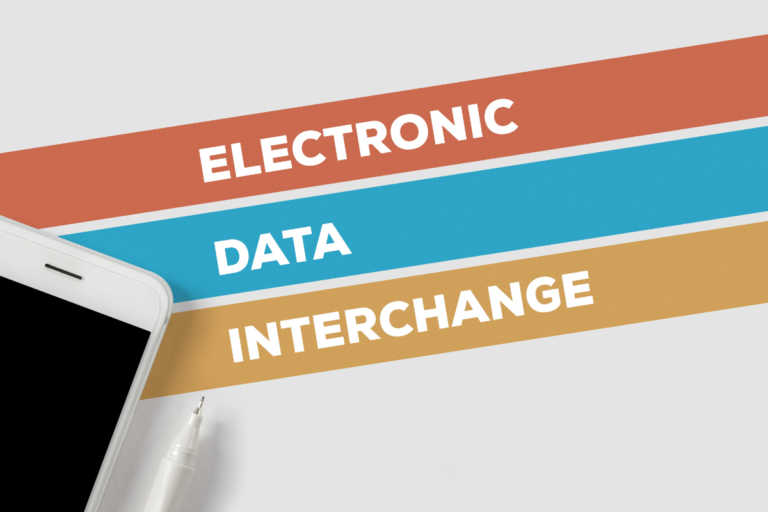Shopify Review for E-commerce
Imagine your online store as a ship navigating through the vast seas of e-commerce. Just like a skilled captain relies on a sturdy vessel, you need a reliable platform to steer your business.
Shopify is that steadfast ship in the storm, providing stability and tools to help you chart a successful course. But, is it truly the best choice for your e-commerce journey?
Let’s uncover the hidden treasures and potential pitfalls of Shopify to help you make an informed decision for your business.
Key Takeaways
- Shopify offers intuitive interface and secure payment options for seamless e-commerce operations.
- Three pricing plans cater to varying needs, with cost-effective options and global payment gateway integration.
- Customizable design features and branding tools enhance store appearance and user experience.
- Robust customer support, resources, and third-party integrations ensure successful online store management.
Key Features of Shopify
When considering the features of Shopify, it’s essential to understand how this e-commerce platform can benefit your online business. The user interface of Shopify is intuitive and user-friendly, making it easy for you to set up and manage your online store efficiently. With its drag-and-drop interface, customizing your website becomes a breeze, allowing you to create a professional-looking online store without the need for any coding knowledge.
One of the key features that sets Shopify apart is its wide range of payment gateways. Shopify integrates with over 100 different payment processors, giving your customers the flexibility to pay using their preferred method. Whether it’s credit cards, PayPal, Apple Pay, or even cryptocurrency, Shopify has you covered. The platform also ensures secure transactions, providing your customers with peace of mind when making purchases on your site.
Pricing Plans and Options
When considering Shopify’s pricing plans and options, it’s crucial to examine the features each plan offers and how they align with your e-commerce needs.
A cost comparison analysis will help you determine which plan provides the best value for your business based on the features included and the price point.
Understanding the nuances of each plan’s features and costs will empower you to make an informed decision that benefits your e-commerce venture.
Plan Features Overview
In Shopify’s plan features overview, the pricing plans and options provide a comprehensive range of tools and functionalities tailored to different business needs and sizes. Payment processing is efficient with Shopify, offering various options such as Shopify Payments, which eliminates transaction fees when used.
Additionally, Shopify integrates with over 100 payment gateways globally, allowing flexibility based on your target market. When it comes to shipping options, Shopify offers discounted shipping rates through Shopify Shipping, simplifying the fulfillment process. You can also provide real-time carrier shipping rates to your customers, ensuring transparency and accurate shipping costs.
These features make Shopify a robust platform for managing the financial and logistical aspects of your e-commerce business effectively.
Cost Comparison Analysis
Comparing the costs of Shopify’s pricing plans and options reveals a detailed analysis of the value each plan offers for different e-commerce business needs. Shopify provides three main plans: Basic Shopify, Shopify, and Advanced Shopify.
Basic Shopify starts at $29 per month, offering essential features. The Shopify plan at $79 per month includes additional features like gift cards and professional reports. Advanced Shopify, priced at $299 per month, caters to businesses needing advanced reporting and real-time carrier shipping.
When conducting a pricing comparison, Shopify’s plans may seem slightly higher than some competitors, but the platform features, such as a variety of apps, themes, and integrations, make it a robust choice for businesses looking to grow. Conducting a cost analysis against competitor options is crucial to ensure you choose the best fit for your e-commerce needs.
Pros of Using Shopify
Boosting your online store’s functionality and scalability, Shopify offers a range of advantages that can benefit e-commerce businesses of all sizes. Here are four key pros of using Shopify:
- Ease of Use: Shopify is known for its user-friendly interface, making it easy for beginners to set up and manage their online stores without the need for extensive technical knowledge.
- Scalability: Whether you’re just starting or already established, Shopify can scale with your business. It offers various plans and features that can accommodate your growth and evolving needs.
- Wide Range of Templates: Shopify provides a vast selection of professionally designed templates that can help you create a visually appealing and customized online store to suit your brand.
- App Store: With Shopify’s extensive app store, you can enhance your store’s functionality by integrating various apps for marketing, analytics, inventory management, and more, allowing you to tailor your store to meet your specific requirements.
Cons of Using Shopify
While Shopify offers numerous benefits for e-commerce businesses, there are some drawbacks to consider when using this platform. One of the main cons of using Shopify is its platform limitations.
While Shopify is a powerful e-commerce solution, it may not be suitable for businesses with very specific or complex needs. The platform’s flexibility is somewhat restricted compared to other more customizable options. This can be frustrating for businesses that require highly specialized features that aren’t readily available within the Shopify ecosystem.
Another downside to using Shopify is its reliance on third-party apps. While Shopify does offer a wide range of apps to extend the platform’s functionality, relying on third-party apps can sometimes lead to additional costs and potential compatibility issues. Moreover, the quality and reliability of these third-party apps can vary, which may impact the overall performance and stability of your e-commerce store.
It’s essential to thoroughly research and test any third-party apps before integrating them into your Shopify store to ensure they meet your specific requirements and standards.
Customization and Design Capabilities
When setting up your online store on Shopify, you’ll appreciate the platform’s theme flexibility, allowing you to tailor the look and feel to suit your brand.
With a wide range of design templates available, you can quickly create a professional and visually appealing storefront without the need for extensive design skills.
Shopify offers various branding options to help you establish a unique identity and make a lasting impression on your customers.
Theme Flexibility
Enhance your Shopify store’s visual appeal and user experience with the extensive theme flexibility that allows for seamless customization and design capabilities. When it comes to theme flexibility on Shopify, you have a range of options to tailor your store to your brand’s needs. Here are some key features to consider:
- Drag-and-Drop Editor: Customize your theme with ease using a user-friendly drag-and-drop editor.
- Responsive Design: Ensure your store looks great on all devices with responsive design features.
- Customizable CSS and HTML: Fine-tune your store’s appearance by editing the CSS and HTML.
- App Integrations: Enhance your store further with various app integrations for added functionality.
Design Templates
To further elevate your Shopify store’s visual appeal and user experience, explore the extensive customization and design capabilities offered through the diverse range of design templates available. When considering design templates on Shopify, it’s crucial to stay updated with current design trends to ensure your store remains visually appealing and engaging. The customization options within these templates allow you to tailor your store to reflect your brand identity effectively. Remember to prioritize user experience and functionality when choosing a design template to ensure seamless navigation and a pleasant shopping experience for your customers.
| Design Trends | Customization |
|---|---|
| Minimalist | Extensive |
| Bold Colors | Tailored |
| Simplistic | Brand Identity |
| Responsive | Flexible |
Branding Options
Utilize Shopify’s customizable branding options to enhance your store’s identity and design elements, allowing for a tailored and visually cohesive online presence. When it comes to branding strategies and visual identity, Shopify provides robust tools to help you stand out and connect with your target audience effectively.
Here are four key features to consider:
- Logo and Color Palette Customization: Tailor your store’s branding by uploading your logo and selecting a color scheme that aligns with your brand identity.
- Theme Customization: Personalize your website’s theme to reflect your brand’s tone and style, ensuring a consistent look across all pages.
- Typography Options: Choose from a variety of fonts to convey your brand’s voice and improve readability.
- Image and Video Integration: Showcase your products or brand story using high-quality visuals to engage customers and build brand recognition.
Shopify App Store and Integrations
Exploring the robust Shopify App Store and its various integrations can significantly expand the capabilities of your e-commerce platform. The App Store offers a wide range of apps tailored to enhance different aspects of your online store, from marketing and sales to customer service and inventory management. With over 4,100 apps available, the selection is diverse, catering to various business needs.
When considering which apps to integrate, user reviews and recommendations play a crucial role in guiding your decision-making process. By reading through user feedback, you can gain valuable insights into the performance and reliability of each app, helping you choose the ones that best suit your requirements. Additionally, Shopify’s integrations with third-party services and tools provide further customization options for your store, allowing you to streamline operations and optimize your online presence.
Customer Support and Resources
For a comprehensive e-commerce experience with Shopify, accessing robust customer support and resources is essential. Shopify offers various channels to assist you in navigating any challenges you may encounter while setting up and running your online store.
- Live chat: Shopify provides a live chat feature that allows you to connect with support representatives in real-time. This instant communication channel can be invaluable when you need quick assistance.
- Help center: The Shopify Help Center is a treasure trove of resources, including guides, tutorials, and FAQs. It’s a great starting point for finding answers to common questions and exploring self-help options.
- Community forums: Engage with other Shopify users on community forums to seek advice, share insights, and learn from one another’s experiences. The community can be a supportive resource for troubleshooting and getting creative ideas for your store.
- 24/7 support: Shopify offers round-the-clock customer support via email, phone, and live chat. This ensures that help is always available whenever you need it, regardless of the time zone you’re in.
Conclusion
In conclusion, Shopify is like a versatile artist’s palette, allowing you to mix and match tools to create a masterpiece of an online store.
With its user-friendly interface, extensive customization options, and helpful customer support, Shopify is a reliable choice for your e-commerce needs.
So, grab your virtual paintbrush and start crafting your dream online store with Shopify today.
Happy selling!






